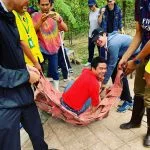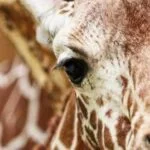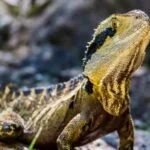Rare Iguana Welfare and Conservation in the Cayman Islands
Wild Welfare has returned to virtual training this month but in a brand new country of operation for the charity. The team were invited to speak to the staff at the Blue Iguana Conservation Project in the Cayman Islands to discuss animal welfare concepts and how they can be applied to the care and management of the rare lizard. The Blue Iguana (Cyclura lewisi) is an endangered species according to the IUCN but thankfully populations are increasing due to the efforts of this project.
Run by the National Trust for the Cayman Islands, the project restores wild populations of iguanas through breed and release schemes in order to ensure a viable population within native habitats. The welfare of these captive iguanas is of the upmost importance to the team which is why Wild Welfare were invited to share their expertise on animal welfare principles.
The presentation was given to a collection of animal care staff and managers of both the iguana project and a local turtle project. Wild Welfare’s Animal Welfare Field Manager Sarah Bonser-Blake, who gave the presentation, discussed some of the basic concepts of animal welfare, highlighting the importance of offering captive wild animals choice, comfort and control over their environment.
“The aim of the talk was to create a foundational understanding of the welfare concepts which reinforce good animal care to the team, and re-iterate the importance of these principles in their daily care activities. Good welfare underpins the critical contribution to conservation efforts of any facility so it was fantastic to be able to share this knowledge with such a forward thinking and important conservation project.”
Although many elements of good animal care are species-specific, welfare as a whole is relevant to all species. It was noted by some of the attendees that reptile welfare can sometimes be overshadowed by prioritising concern for large mammals so the talk was a great opportunity to highlight the significance of welfare practices which impact reptiles. Wild Welfare prioritises the welfare of all species, from invertebrates, fish and reptiles to birds and mammals. Due to research into the science of animal welfare, there is so much more information about animal sentience and how behaviour and welfare is important to all species, even if we as mammals cannot always easily relate to other taxonomic groups of animals.
Luke Harding, Operations Manager for the Blue Iguana Conservation Project said:
“What a fabulous presentation! My team really enjoyed it and it’s a great learning experience for them, and important for them to learn to expand their thinking and stay current with changes to laws and regulations. This exciting collaboration with Wild Welfare is a great example of building local capacity through training and development and I hope is the start of a great future relationship that we can continue to expand on to have a positive impact for iguanas regionally and not just here on Grand Cayman.”
When we talk about animal welfare, we are concerned with the experiences of an individual animal, whereas conservation tends to focus on viable populations and the numbers of individuals present. However, compassionate conservation highlights the importance of each individual within that population number, and the way in which each animal’s physiological and emotional well-being can be prioritised through the actions of animal care staff for the benefit of conservation efforts. Ensuring that each iguana within the facility is experiencing the best welfare possible ensures a healthy and happy viable population.
Elements of the provision of good care and welfare can also ensure that animals have the best chance of survival once released into the wild. For example, an iguana that has never been given the opportunity to climb a moving branch or forage for food will have little experience of the behavioural adaptations needed for these activities. This might impact the individual negatively in terms of captive welfare or wild survival.
The information given in the presentation will be used by the conservation team to help build local capacity and provide up to date information to staff on the frontline of conservation efforts for this remarkable species. It was a great start to another year of hosting training workshops for animal care staff by the Wild Welfare team.
Wild Welfare works in over 10 different countries worldwide but this is the first instance of the charity having an impact within the Cayman Islands.
~ENDS~
Notes to Editors
For more information or interview requests please contact Wild Welfare on communications@wildwelfare.org
Blue Iguana Conservation Project: The project is run by the National Trust for the Cayman Islands and its primary goal is to protect Cayman’s native species and the habitats in which they live.
Wild Welfare: Wild Welfare is a global organisation committed to improving animal welfare for captive wild animals. By working together with animal welfare organisations and captive wildlife facilities, including zoos, aquariums and sanctuaries, we achieve long-term and sustainable solutions to the most critical issues facing wild animals in captivity.
Our vision is a world where every captive wild animal is able to thrive and live a good life. Find out more at: wildwelfare.org. Registered charity in England and Wales No.1165941.
Image © Annette Gunn





